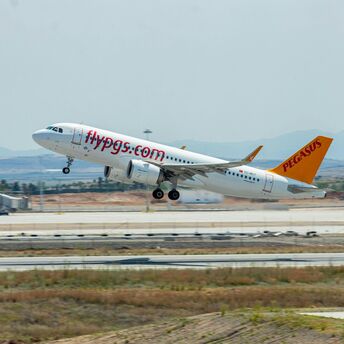Travelers in the UK Should Prepare for Cold Front

A cold air mass is expected to take hold across the UK, bringing a noticeable drop in temperatures and an increased risk of winter hazards such as frost, ice, and snow. As high pressure strengthens over the region, cold easterly winds will spread across central and southern areas, making conditions feel even harsher. This shift in weather patterns is set to begin on Friday, with freezing temperatures persisting through the weekend. While some regions may experience showers, falling temperatures could turn rain into sleet or snow, particularly at higher elevations. Travelers should be aware of worsening road conditions and potential disruptions to transport networks.
Forecasters warn that icy roads, reduced visibility, and strong winds could make travel more hazardous, especially in areas prone to frost and snowfall. Eastern and southeastern parts of the country are expected to be the most affected by the cold snap, with occasional heavy cloud cover limiting sunshine. In contrast, northwestern regions may see clearer skies but will still experience freezing overnight temperatures. With brisk easterly winds lowering perceived temperatures, those traveling by car or foot should take extra care to avoid ice-related accidents. Public transport users should prepare for schedule changes, as snow and frost may affect rail and bus services. Airlines may also adjust flight timetables in response to adverse weather.
For those planning trips, these conditions could lead to significant delays across multiple transportation services. Airports in affected areas may experience flight cancellations or extended waiting times, especially in the mornings and evenings when frost and ice are most severe. Travelers should check their flight status frequently and allow extra time for security procedures, as unexpected disruptions may occur. On the roads, icy patches and poor driving conditions will increase the likelihood of accidents, particularly on untreated surfaces. Authorities advise motorists to use winter tires, drive cautiously, and keep an emergency kit on hand in case of extended delays.
Rail passengers should anticipate potential disruptions, including slower train speeds and occasional cancellations due to track icing. Travelers relying on public transport should prepare for service interruptions and monitor real-time updates from transport providers. For those taking long-distance journeys, planning alternative routes and being flexible with departure times can help reduce the stress of last-minute cancellations. Booking accommodations close to transport hubs or having backup travel options may also be wise, especially for those relying on tight connections.
In conclusion, this cold snap will have a significant impact on travel, making it essential for passengers to stay informed and prepared. Whether traveling by air, rail, or road, being proactive about checking weather updates and transportation alerts can prevent unnecessary delays. As freezing conditions persist, having contingency plans and adjusting schedules accordingly will be key to avoiding disruptions. Travelers are encouraged to dress warmly, allow extra time for travel, and remain flexible to adapt to changing conditions in the coming days.



















